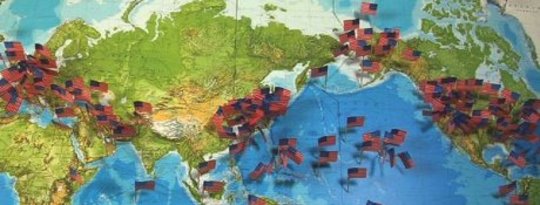
The Last Empire
TOMDISPATCH - After the rise and fall of the Assyrians and the Romans, the Persians, the Chinese, the Mongols, the Spanish, the Portuguese, the Dutch, the French, the English, the Germans, and the Japanese, some process seemed over. The United States was dominant in a previously unimaginable way -- except in Hollywood films where villains cackled about their evil plans to dominate the world.
As a start, the U.S. was an empire of global capital. With the fall of Soviet-style communism (and the transformation of a communist regime in China into a crew of authoritarian “capitalist roaders”), there was no other model for how to do anything, economically speaking. There was Washington’s way -- and that of the International Monetary Fund and the World Bank (both controlled by Washington) -- or there was the highway, and the Soviet Union had already made it all too clear where that led: to obsolescence and ruin.
No wonder that, in the new century, neocons and supporting pundits would begin to claim that the British and Roman empires had been second-raters by comparison. No wonder that key figures in and around the George W. Bush administration dreamed of establishing a Pax Americana in the Greater Middle East and possibly over the globe itself (as well as a Pax Republicana at home). They imagined that they might actually prevent another competitor or bloc of competitors from arising to challenge American power. Ever.
No wonder they had remarkably few hesitations about launching their incomparably powerful military on wars of choice in the Greater Middle East. What could possibly go wrong? What could stand in the way of the greatest power history had ever seen?
























